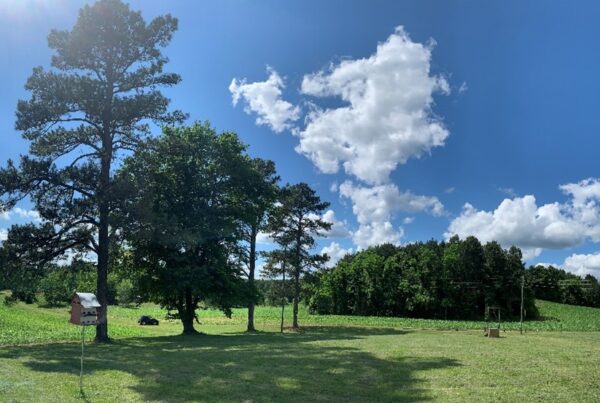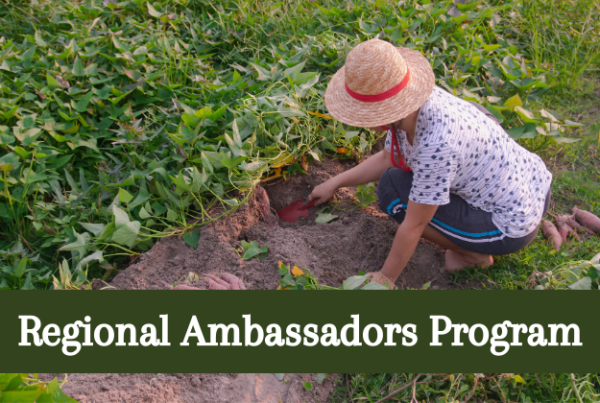I did not intend to be a farmer. Carpentry seemed to be a good way to make money when I was a college student, and I liked it. So I did that before finding my way to farming and making compost. In a way, I was preparing to farm long before I became a farmer. I kept a garden from the age of 10 or so and always loved it. I entered contests in the 4-H club at the Fayette County Free Fair back home in Indiana. I competed mainly in flower arrangements. I grew herbs and vegetables. Did reports for school on tree species and their uses. How was I to know then that it would lead to farming?
Some people looked down upon staying back on the farm. The smart ones, such reasoning went, went to college and got a good job. It’s a kind of stereotype, even a prejudice. Let me tell you something I’ve learned. You have to know more about a wide range of topics to be a farmer than most people realize. There’s a wide body of knowledge held within each farmer – and, of course, many farmers are highly educated folks. We have to know something about equipment repair and maintenance, weather cycles, cultural details about each plant we grow, animal husbandry, plumbing, soil types and care and biology. Just to name a few.
I’m a farmer, and I eat. So I am concerned about growing food issues, including our aging farm populations and the fact that food is coming from other countries that also face agricultural problems and have far different standards than the U.S. Aging farm populations matter. Knowledge is lost as each farmer retires or dies and they are not replaced.
The average age of an American farmer grew from 50.5 years old to 58.3 years old over the three decades leading up to the 2012 Census of Agriculture by the U.S. Department of Agriculture. A third of principal farm operators were over the age of 65.
Wordwide, according to the The Guardian newspaper in the U.K., the average age is about 60. Farmers in other countries – growing the kinds of foods we import and eat every day – often live in poverty.
We are losing our farmers and their knowledge, and more food is coming from other countries. That suggests that we should ask ourselves who will grow the food here if the shipments stop coming and our kids are all doing something else for a living?
Meanwhile, the debate about immigration and ‘the wall’ is raging. Not so many Mexicans and others came up to do the work that needs doing on the farms this year. There is food rotting on the ground — millions of dollars worth — in California and other western states as a result of this labor shortage, according to Fortune and other publications.
My daughter living in California cans every year. She mostly puts up tomatoes and strawberries. She couldn’t get what she needed this year because farmers she deals with told her they couldn’t get workers to harvest food.
The farmer, scholar and writer Wendell Berry writes a great deal about the need to keep people farming and connected to the land. The book I quoted from above is What Are People For? Another good book is The Unsettling of America: Culture & Agriculture. Reinvigorating farm culture and repopulating the land – getting people back on agricultural land to farm it – are some of the topics he explores. Oh, he is a really good writer, too.
We need to do these things here — preserve local agricultural land and find ways to keep people working it. Finding those who want to farm and supporting them while they learn is a good place to start. Access to land for those who want to farm is another hot topic to discuss, which is why efforts such as the agricultural reserve program in Virginia Beach, which buys development rights to keep farmland productive, matter.
We also need to stop demonizing people who come here to do work other folks won’t do. If we fail to bring back a vibrant farm culture, we darn well better let the willing workers cross the border without fear.
We also need to find ways to engage young people in farming. I see food production as a security issue. So we should think about a program here where you sign up for community service for a year or longer and work on a farm — a food corps, of sorts.
That might be another path to interest young people in farming and help farmers, perhaps through internships. We could find some way to support them while they learn. Get them on the land. Maybe find them a spouse.I’m kidding about that last bit.
I became a farmer because I learned to love gardening, then carpentry, then farming. There are many paths to this important work.
If we’re smart, we’ll make more.
By John Wilson





